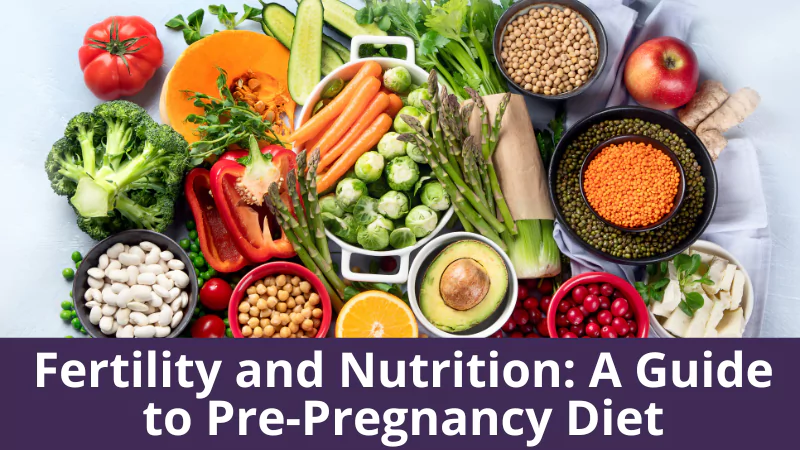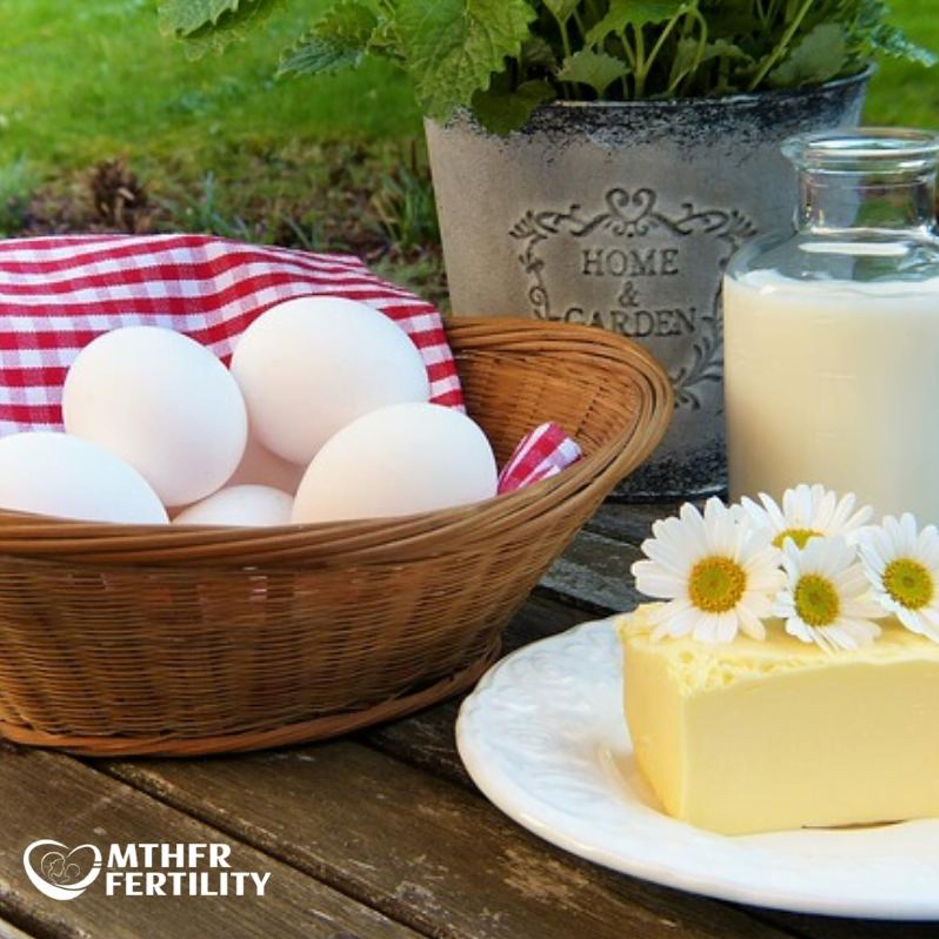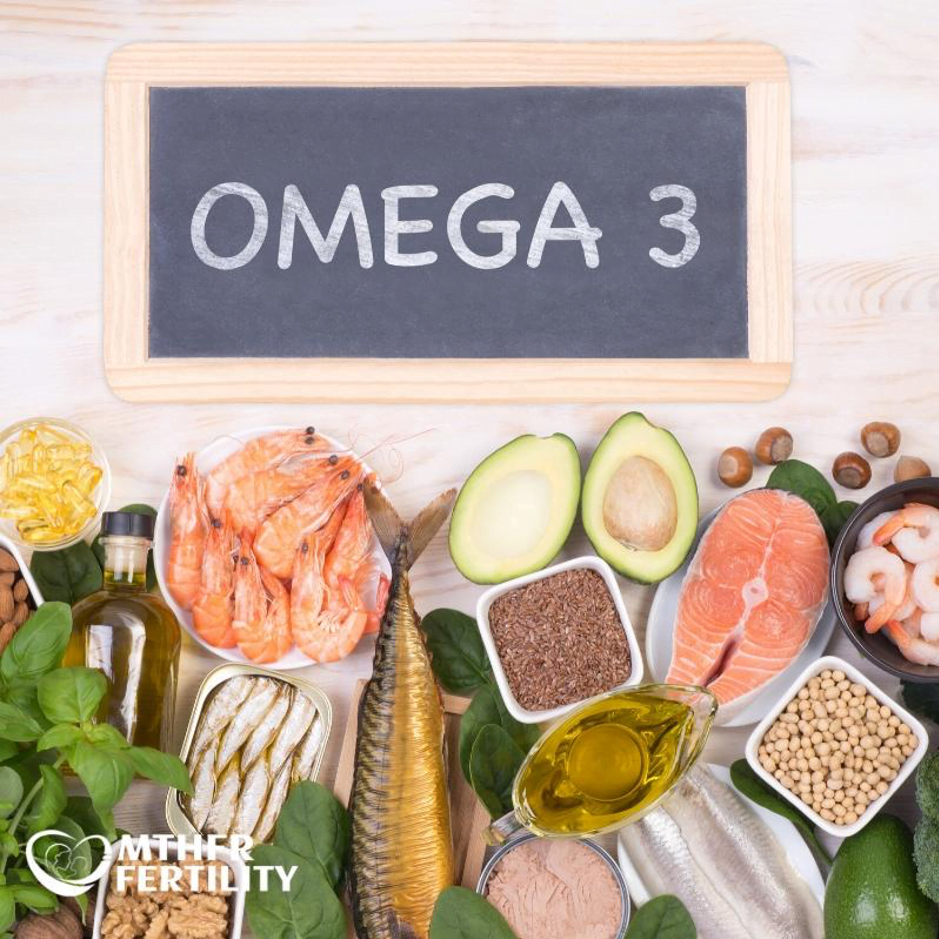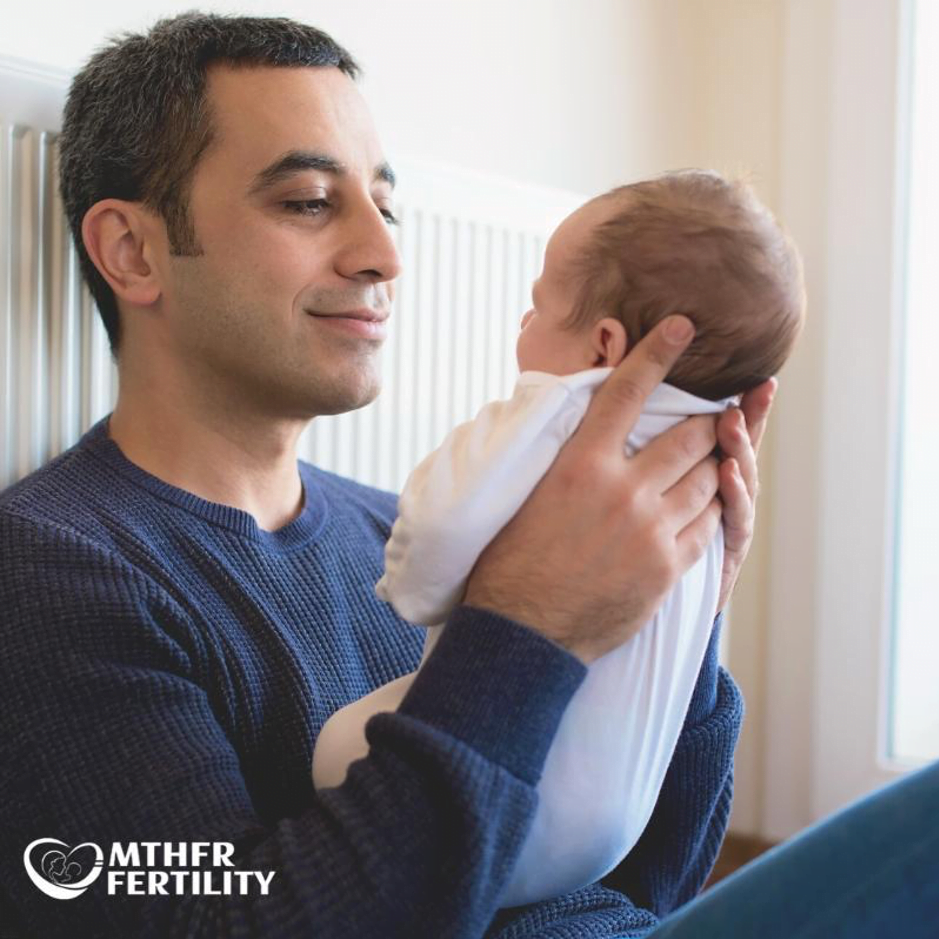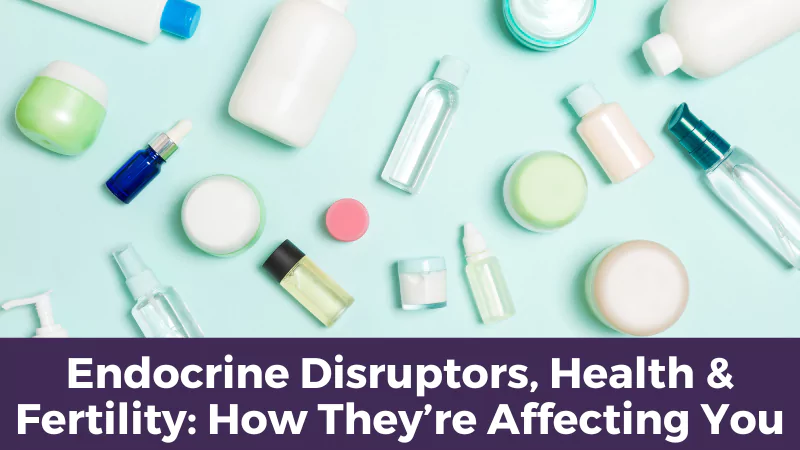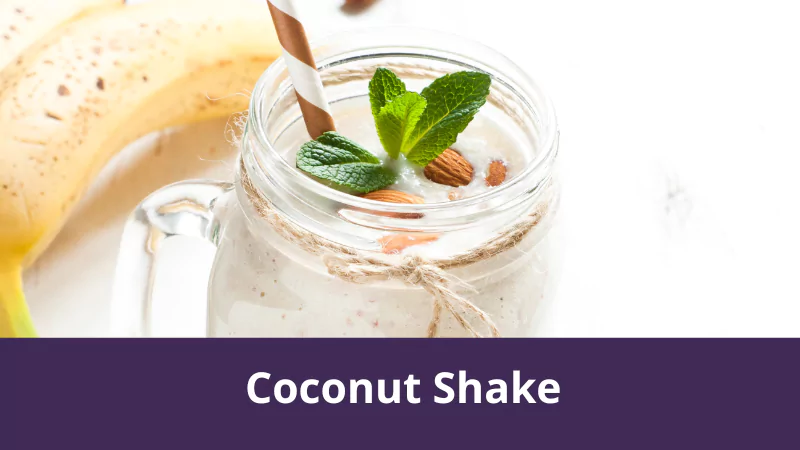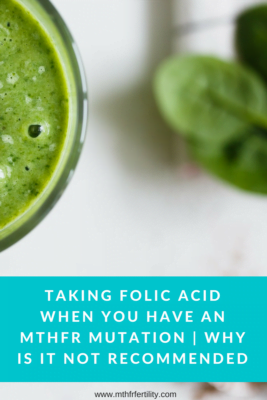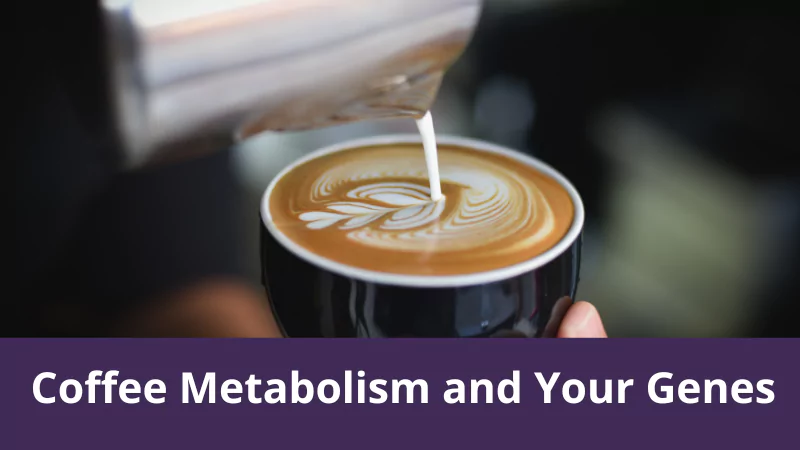You are what you eat, the right nutrition increases the chances of conception and a healthy pregnancy, it also lowers the risk of birth defects like spina bifida, a condition in which the spinal code does not develop properly. Female eggs have a 120 day lifecycle so it’s important to ensure that you are eating well and optimising your nutrients for 4 months BEFORE you want to conceive. For men, sperm have a 90 day lifecycle so we need them to eat well for the 3 months before conceiving. Remember that folate is key for fertility, so not only do you need to eat your leafy greens, but you will most likely need to supplement as well (particularly if you have the MTHFR gene mutation).
The following vitamins and nutrients are linked to improved fertility, include these food items into your diet right away to get the best results.
Folate
Folate is a B-complex vitamin that helps create red blood cells during pregnancy, which provides the ultimate conditions for an embryo to take hold. It is important to prevent neural tube defects and midline disorders like spina bifida. For those with MTHFR genetic polymorphisms it is essential to optimise folate levels in the preconception stage. The reason we need a 4 month preconception period is that the neural tube closes about Day 21 of the fetus’ life and this is a time that most women don’t even know they are pregnant yet.
Food rich in Folate: Eggs, leafy greens, citrus fruits, broccoli, papaya, bananas, avocado.
Calcium
99% of the calcium you consume goes to your teeth and bones and it’s important to stock up calcium for the baby’s bones and teeth. When there is a deficiency the fetus can draw calcium from the mother’s bones, which leads to a higher risk of osteoporosis, a condition in which the bones become weak and brittle. 1,000 milligrams of calcium intake everyday is important before and during pregnancy.
Foods rich in Calcium: Milk, yogurt, cheese, almonds, dark leafy greens, figs, chia seeds.
Omega-3 fatty acids
Omega-3 fatty acids aids in fertility in both men and women. They improve the sperm morphology and motility in men. In women a continuous intake of omega-3 prolonged the reproductive lifespan and even a short term intake, improved the egg quality. They also increase embryo health and assist in maintaining its development after conception.
Foods rich in Omega-3 fatty acids: Walnuts, soybeans, salmon, chia seeds, canola oil, sardines, flaxseeds, mackerel.
Vitamin B12
Deficiency of vitamin B12 can cause infertility, in men it can lead to lower sperm count, DNA damage in sperm cells, premature ejaculation. In women it makes it difficult to conceive, abnormal ovulation, imparired development of egg.
Foods rich in Vitamin B12: Milk, beef liver, salmon, sirloin beef, molluscs, yoghurt, eggs, chicken, tuna.
It’s not just what you eat but also what you don’t. There are some food items that you have to reduce or remove from your diet for a healthy pregnancy.
Foods to avoid: High-mercury fish, soda, chips, fried food, processed foods, rice pasta, low-fat dairy, raw animal products, deli meat, excessive caffeine,
Metabolic disorders affecting fertility
Metabolic disorders including diabetes, obesity, and hyperlipidemia affect a woman’s fertility either by directly damaging oocyte health or by indirectly affecting the pituitary-hypothalamic axis, leading to defective oogenesis. It has been reported in studies that in women with body mass index (BMI) more than 25 kg/m2 or less than 19 kg/m2, are associated with reduced pregnancy rate, increased gonadotrophins and more miscarriages.
Alcohol and infertility
Heavy alcohol use can diminish ovarian reserve and fecundability in women.(7) There is also substantial evidence that alcohol use, even in moderate quantities, negatively affects assisted reproductive technology (ART) outcomes. Alcohol has been found to have a negative effect on all levels of the male reproductive system, particularly in sperm quality and count.
Caffeine and fertility
Studies show that women who drink in excess of one cup of coffee per day and only half as likely to conceive as those who drink one cup or less. There are certain genes that affect your ability to detoxify caffeine, so if you are one of those people, you should not be drinking any caffeine at all. For men some studies do show that excessive intake may impact sperm motility and fertility overall.
Men and fertility
It is just as important for men as it is for women to go on a good preconception diet. Sperm are particularly vulnerable to oxidative stress and so an antioxidant rich diet is important. Men should also maintain a healthy body weight, as obesity alters the testosterone levels, and lowers the sperm count and motility. Making some healthy changes in the diet can improve the quality and quantity of sperm. Foods rich in zinc such as nuts, beans and seafood have shown to improve sperm concentration, motility, morphology and testosterone levels. (8) Foods rich in antioxidants such as nuts, berries, beans, spinach increase sperm count and semen volume. Folate deficiency affects the DNA fragmentation in sperm reducing quality and count.
The takeout should be:
- Eat a well rounded healthy diet
- Include protein rich foods like good quality grass fed meat, beans, nuts and seeds
- Make sure Omega 3 is bountiful and include healthy fish and oils like salmon, snapper, trout (from non farmed sources)
- Plenty of rich antioxidant foods like fruits and vegetables
- Optimise folate levels with lots of leafy green vegetables.
- Avoid caffeine and alcohol and definitely don’t smoke
- Drink plenty of water
- Ensure you are having enough Vitamin B12 as this ensures the uptake of folate. Foods that are high in Vitamin B12 include good quality meat proteins.
- If you have the MTHFR gene and you are unsure of folate levels then why not take out FREE 10 day fertility course to help you on your way.
(1)Chavarro JE, Rich-Edwards JW, Rosner BA, Willett WC. Use of multivitamins, intake of B vitamins, and risk of ovulatory infertility. Fertility Steril. (2008) 89:668–76. doi: 10.1016/j.fertnstert.2007.03.089
https://www.ncbi.nlm.nih.gov/pubmed?Db=pubmed&Cmd=ShowDetailView&TermToSearch=17624345
(2)Chavarro JE, Rich-Edwards JW, Rosner BA, Willett WC. Protein intake and ovulatory infertility. Am J Obstetr Gynecol. (2008) 198:210 e1–7. doi: 10.1016/j.ajog.2007.06.057
https://www.ncbi.nlm.nih.gov/pubmed?Db=pubmed&Cmd=ShowDetailView&TermToSearch=18226626
(3) Chavarro JE, Rich-Edwards JW, Rosner BA, Willett WC. A prospective study of dietary carbohydrate quantity and quality in relation to risk of ovulatory infertility. Eur J Clin Nutr. (2009) 63:78–86. doi: 10.1038/sj.ejcn.1602904
https://www.ncbi.nlm.nih.gov/pubmed?Db=pubmed&Cmd=ShowDetailView&TermToSearch=17882137
(4)Saldeen P, Saldeen T. Women and omega-3 Fatty acids. Obstetr Gynecol Survey. (2004) 59:722–30; quiz 45–6. doi: 10.1097/01.ogx.0000140038.70473.96
https://www.ncbi.nlm.nih.gov/pubmed?Db=pubmed&Cmd=ShowDetailView&TermToSearch=15385858
(5)Vujkovic M, de Vries JH, Lindemans J, Macklon NS, van der Spek PJ, Steegers EA, et al. The preconception Mediterranean dietary pattern in couples undergoing in vitro fertilization/intracytoplasmic sperm injection treatment increases the chance of pregnancy. Fertility Steril. (2010) 94:2096–101. doi: 10.1016/j.fertnstert.2009.12.079
https://www.ncbi.nlm.nih.gov/pubmed?Db=pubmed&Cmd=ShowDetailView&TermToSearch=20189169
(6)Karayiannis D, Kontogianni MD, Mendorou C, Mastrominas M, Yiannakouris N. Adherence to the Mediterranean diet and IVF success rate among non-obese women attempting fertility. Hum Reproduc. (2018) 33:494–502. doi: 10.1093/humrep/dey003
https://www.ncbi.nlm.nih.gov/pubmed?Db=pubmed&Cmd=ShowDetailView&TermToSearch=29390148
(7) Hawkins Bressler L, Bernardi LA, De Chavez PJD, Baird DD, Carnethon MR, Marsh EE. Alcohol, cigarette smoking, and ovarian reserve in reproductive-age African-American women. Am J Obstet Gynecol. 2016;215:758.e1–758.e9. doi: 10.1016/j.ajog.2016.07.012
https://www.ncbi.nlm.nih.gov/pubmed/27418446
(8) Hadwan MH, Almashhedy LA, Alsalman ARS. Oral zinc supplementation restore high molecular weight seminal zinc binding protein to normal value in Iraqi infertile men. BMC Urol. 2012;12:32.
https://www.ncbi.nlm.nih.gov/pubmed/23145537

